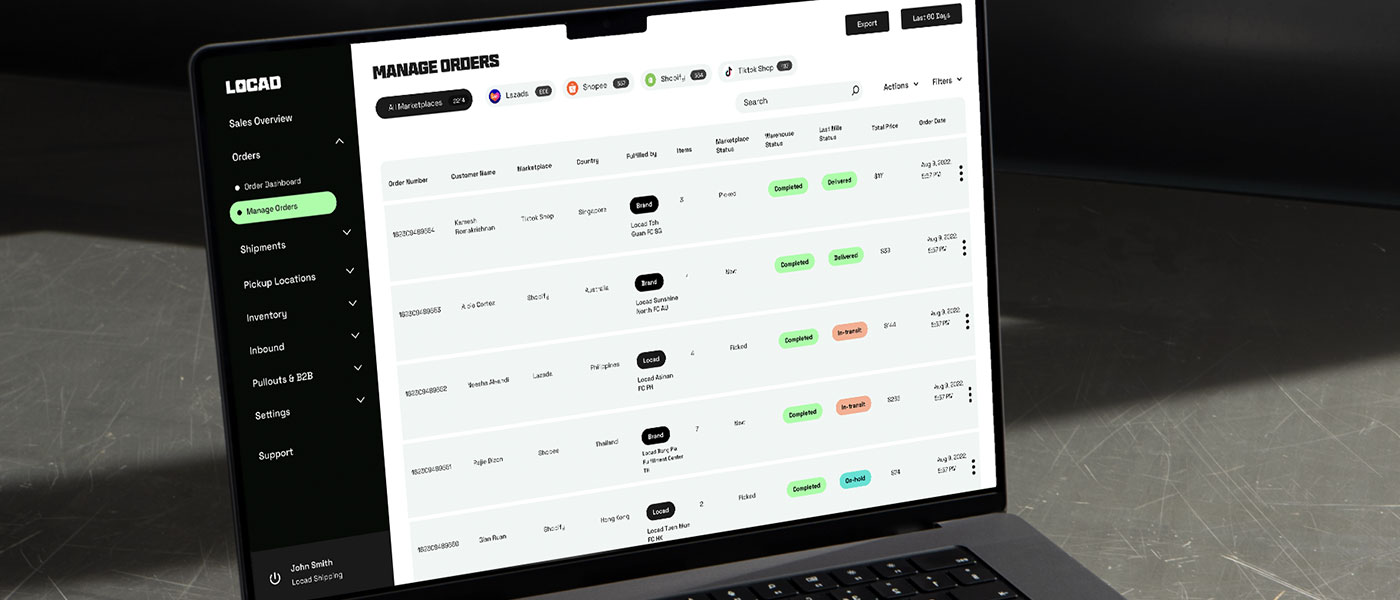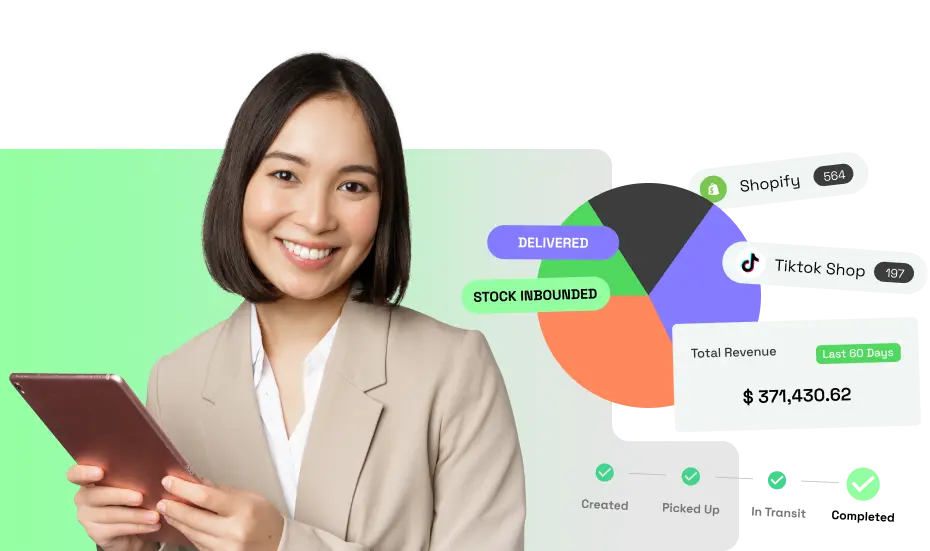eBay and Facebook Marketplace stand out as two prominent platforms for Australian e-commerce business owners when it comes to buying and selling. Each offers unique opportunities and challenges, making the choice between them a pivotal decision in e-commerce success for both seasoned and aspiring online sellers.
In this article, we delve into the core features of these platforms. We’ll explore what you can sell on eBay and Facebook Marketplace, dissect the seller fees associated with each, and identify the key factors that should guide your decision when choosing between the two. Let’s unravel the eBay vs. Facebook Marketplace debate and equip you with the insights you need to make informed choices.
What is eBay?
eBay, founded in 1995, has evolved into one of Australia’s largest online marketplaces, home to e-commerce sellers putting up a diverse array of products, including both new and used items. Operating on both an auction-style and fixed-price format, eBay facilitates transactions across various categories, such as fashion, accessories, health and beauty, electronics, fashion, collectibles, and more.
Sellers can leverage eBay’s global reach and robust seller tools to tap into a vast customer base. With a reputation for secure transactions and buyer protection policies, eBay remains a preferred platform for individuals and businesses alike, aiming to reach a broad audience and maximize their sales potential.
Pros of selling on eBay
eBay Australia offers a range of advantages to the sellers on the platform. Some of them have been discussed in-depth below:
- Seller Protection
eBay offers a robust Seller Protection program, which is designed to safeguard sellers from fraudulent buyers or transactions. eBay protects its sellers from abusive buyers, deliberate negative ratings and feedback, fulfillment delays due to circumstances beyond your control, returns that arrived with damages and more. This protection can be a comforting aspect for sellers, assuring them that they won’t be left vulnerable to scams or dishonest buyers. It helps maintain trust and security within the platform.
- Feedback System
eBay’s feedback system is a valuable tool for both buyers and sellers. It allows users to leave feedback about their transactions, helping build a transparent reputation system. Positive feedback can enhance a seller’s credibility, leading to increased trust and potentially more sales. Conversely, sellers can also provide feedback about buyers, which can help others make informed decisions.
- Integration of Payment Systems
The integration of payment systems on eBay provides a seamless payment process for both buyers and sellers. The platform caters to different demographics with payment options like credit card, debit card, digital payment wallets. This makes it easy for sellers to accept payments instantly and offers a secure way to manage financial transactions.
- Global Reach
eBay’s global reach is one of its standout features. It allows sellers to reach a vast international audience, expanding their market and potential for sales. This global presence can be especially appealing for businesses looking to scale their operations and connect with customers from around the world.
What Can You Sell – eBay
You can sell almost anything on eBay, from new items to used items, from collectibles to antiques. Some of the most popular items sold on eBay include:
- Electronics (e.g., smartphones, laptops, TVs, video games, etc.)
- Clothing and accessories
- Home and garden items (e.g., furniture, appliances, décor, etc.)
- Sporting goods
- Toys and games
- Collectibles and antiques
- Cars and motorcycles
- Business and industrial items
eBay also has a number of specialized categories for items such as coins and currency, stamps, sports memorabilia, and musical instruments.
In addition to this, reselling is also an option on eBay, with sneakers finding a brand-new and expansive market on the platform. In fact, due to the popularity of reselling rare sneakers, eBay has also started the eBay Sneaker Authentication Service to verify the authenticity of any pair selling for over $75.
Seller Fees on eBay
Unlike most other platforms, eBay charges only two main types of fees to sellers:
- Listing fees: Listing fees are charged when you create a listing for an item on eBay. Listing fees vary depending on the category of the item and the type of listing you create. For example, basic listings are free, but featured listings and listings with more than 12 photos have higher listing fees.
- Final Value Fees: Final value fees are charged when an item sells on eBay. Final value fees are calculated as a percentage of the total sale price, including shipping costs. The final value fee for most categories is 13.25%, plus a $0.30 per order fee. However, there are lower final value fees for certain categories, such as books and collectibles.
In addition to listing and final value fees, eBay also charges a number of other fees, such as payment processing fees, insertion fees, and shipping label fees. You can learn more about eBay’s fees on the eBay website.
What is Facebook Marketplace?
Facebook Marketplace, introduced in 2016, is Facebook’s answer to the growing demand for local and online commerce. It’s a user-friendly platform that allows users to buy and sell products within their local communities.
With Facebook Marketplace, users can list a wide range of items, from household goods to electronics, clothing, and even services. The key differentiator is its hyper-local focus, connecting buyers and sellers in the same geographic area and fostering face-to-face transactions. Facebook Marketplace is accessible through the Facebook app or website, making it an attractive choice for those seeking convenience and a community-oriented selling experience.
Pros of selling on Facebook Marketplace
Facebook Marketplace is an incredibly convenient and accessible platform for e-commerce sellers and does not require any additional steps for registration. It helps sellers not just acquire and connect with followers but take a step further and sell to them. Here are a few of the other pros of selling on Facebook Marketplace.
- Easy to Use
Facebook Marketplace is known for its user-friendly interface. It seamlessly integrates with the Facebook platform, and this familiarity makes it easy for both individuals and businesses to get started. Listing items and managing transactions is a straightforward process, making it accessible for users of all levels of technical expertise.
- No Extra Fees
One significant advantage of Facebook Marketplace is the absence of listing fees or transaction fees for most users. While Facebook does charge a flat rate selling fee. This can be a cost-effective option for sellers, as it allows them to keep a larger portion of their earnings compared to some other online marketplaces. While other platforms may charge fees for listing items or successful sales, Facebook Marketplace generally operates without these additional costs.
- Easy to Create Listings
Creating listings on Facebook Marketplace is a hassle-free process. Sellers can quickly upload photos, add descriptions, set prices, and specify item conditions. This simplicity streamlines the selling process and encourages users to list their products without encountering complex listing requirements.
- Lots of Active Users
Facebook has a massive user base that frequents the platform to connect with friends, follow their favorite brands, and many of these users actively browse and shop on Facebook Marketplace. This high user engagement can translate to increased visibility for your listings and the potential for a large number of interested buyers.
- Categories are Easy to Navigate
Facebook Marketplace’s well-organized category system makes it easy for buyers to find items they are interested in. This feature enhances the browsing and shopping experience, increasing the likelihood that potential buyers will discover and interact with your listings.
- Seller Protection
While not as comprehensive as eBay’s Seller Protection, Facebook Marketplace offers a level of seller protection. Sellers can communicate with potential buyers, check their profiles, and report any suspicious activity. This helps maintain a degree of security and trust within the platform.
What Can You Sell – Facebook Marketplace
You can sell almost anything on Facebook Marketplace, from new items to used items, from collectibles to antiques. Some of the most popular items sold on Facebook Marketplace include:
- Clothing and accessories
- Home and garden items (e.g., furniture, appliances, décor, etc.)
- Sporting goods
- Toys and games
- Collectibles and antiques
- Cars and motorcycles
- Pet supplies
- Baby and kids’ items
- Electronics
- Video games
- Books
- Music and movies
- Tickets to events
Seller Fees on Facebook Marketplace
Facebook Marketplace does not charge sellers any listing fees. However, it does charge a selling fee on all sales. The selling fee is calculated as a percentage of the sale price, and it varies depending on the category of the item being sold.
Here is a breakdown of Facebook Marketplace’s selling fees:
- $0.40 flat fee for sales of $8 or less
- 5% for sales of more than $8
Facebook Marketplace also charges a payment processing fee on all sales. The payment processing fee is calculated as a percentage of the sale price, plus a flat fee of 2.9% plus $0.30.
Factors to Consider When Choosing Between Facebook Marketplace and eBay
The primary difference between the two platforms lies in the fact that eBay is a portal exclusively designed for selling, whereas Facebook Marketplace is a social media platform where e-commerce seller can also list their items. However, there are a few things one can consider when making a decision between the two platforms.
- Fees and Costs
One of the key factors to weigh when deciding between Facebook Marketplace and eBay is the cost of selling. eBay typically charges various fees, including listing fees, final value fees, and PayPal transaction fees. In contrast, Facebook Marketplace is known for its minimal fees, with most listings being free to post. Sellers should assess their budget and determine which platform aligns with their financial goals.
- Listing Competition
Consider the level of competition within your niche or category. eBay, with its global reach, often presents sellers with more competition. On Facebook Marketplace, competition may vary by location, with the number of sellers potentially being lower in some areas. Assess the supply and demand in your specific market to understand how it might impact your sales.
- Payment and Shiping
Both platforms offer different approaches to payment and shipping. eBay has an integrated system for accepting payments, and it offers various shipping options and partnerships with carriers. On Facebook Marketplace, sellers have the option to go with the platform-specific payment method – Facebook Pay or apply flexible payment and negotiate directly with the buyers. Consider your preferred payment methods and shipping logistics when choosing the platform that suits your needs.
- Type of product
The nature of the products you plan to sell can influence your choice between Facebook Marketplace and eBay. eBay caters to a wide range of product categories, making it suitable for both new and used items, collectibles, and niche products. Facebook Marketplace is ideal for local sales and often focuses on used or second-hand goods, as well as services. Evaluate your inventory and target audience to determine which platform aligns better with your product offerings.
Closing Thoughts
eBay and Facebook Marketplace emerge as two formidable contenders, each offering distinct advantages and unique selling propositions. eBay’s global reach, comprehensive seller protection, and established feedback system provide a reliable platform for businesses and individuals alike.
Meanwhile, Facebook Marketplace’s ease of use, minimal fees, and local focus make it a compelling choice for those seeking a more community-oriented and budget-friendly approach to selling.
Ultimately, the choice between these platforms should be driven by your specific goals, the products you intend to sell, and your target audience. Consider the factors we’ve explored, and you’ll be better equipped to make an informed decision on your path to successful online selling!
Is it better to sell on eBay or Facebook Marketplace?
eBay is better for sellers who want to reach a global audience and who have a wide variety of items to sell. Facebook Marketplace is better for sellers who want to focus on local sales and who are selling a smaller number of items.
How much does eBay take per sale?
eBay charges a final value fee on all sales. The final value fee is calculated as a percentage of the sale price, and it varies depending on the category of the item being sold. Most categories have a final value fee of 13.25%.
What are the advantages of social media in the Philippines?
The advantages of social media in the Philippines include increased brand visibility, cost-effective advertising, real-time customer feedback, access to a large and engaged audience, and the ability to build meaningful relationships with customers.
What items Cannot be sold on Facebook Marketplace??
Facebook Marketplace prohibits the sale of certain items, including:
- Alcohol
- Drugs
- Firearms and ammunition
- Hazardous materials
- Live animals
- Prescription drugs
- Stolen goods
- Tobacco products
- Weapons












